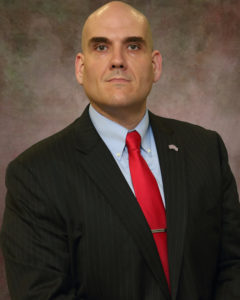This past week I was asked to fill in for a speaker, at the NGA 2018 Governors’ Education Policy Advisors Institute, that was not able to make it due to Hurricane Florence. First, let me extend my sympathies to those on the East Coast that were affected by the storm and resulting floods; my thoughts and prayers are with you and your families.
During the short time, approximately 23 hours, I had to prepare for my speech, I thought about “what do I want to discuss.” Of course, I could have presented the same “Computer Science in Arkansas” discussion that I have given so often that I recite it in my sleep, but I decided since I had gubernatorial policy advisors in the room, that I would issue a challenge, or what turned into a series of challenges. I will share some of those challenges and thoughts here.
While a good portion of the speech focused on the technological displacement, or in a positive light “emerging jobs creation,” I also reminded the group of the following:
“Exposed deficiencies in our educational system come at a time when the demand for highly skilled workers in new fields is accelerating rapidly. For example: Computers and computer-controlled equipment are penetrating every aspect of our lives–homes, factories, and offices.
We must emphasize that the variety of student aspirations, abilities, and preparation requires that appropriate content be available to satisfy diverse needs. Attention must be directed to both the nature of the content available and to the needs of particular learners. The most gifted students, for example, may need a curriculum enriched and accelerated beyond even the needs of other students of high ability. Similarly, educationally disadvantaged students may require special curriculum materials, smaller classes, or individual tutoring to help them master the material presented. Nevertheless, there remains a common expectation: We must demand the best effort and performance from all students, whether they are gifted or less able, affluent or disadvantaged, whether destined for college, the farm, or industry.
The teaching of computer science in high school should equip graduates to: (a) understand the computer as an information, computation, and communication device; (b) use the computer in the study of the other Basics and for personal and work-related purposes; and (c) understand the world of computers, electronics, and related technologies.”
When I informed the group that this was from A Nation at Risk published in April of 1983, I noted quite a few shocked faces. Then I asked the real questions. What has changed in education over the past 35 years? Has the role of teachers changed to better utilize the technology that is becoming not only more prevalent within our classrooms, but also increasingly crucial for students to learn before they are sent into a job market that demands they have an appropriate amount of digital literacy mixed with problem solving skills?
Many industry leaders I interact with say that the K-12, or even the K-16, system is not providing the workers with the skills they need. The current workforce has more computing power and digital resources at their disposal than at any time in history, yet we find that some just cannot or choose not to “get the job done.” Our industries do their best to provide the latest technology, a safe and comfortable work environment, and on-the-job training. They encourage, correct, direct, and support their employees, yet they still are often left with producers of subpar work. Why is this? Is it because we at the K-16 space have in many ways failed? I do believe that the fault has to partially lie at the feet of educators, and I include myself in that fault group. We are failing to produce more problem solvers than brain flushers.
What is the solution? It is to not teach (or at least teach as it is currently understood). A big part of the solution will be educators who become facilitators of learning. They will allow our kids to grapple and struggle with real problems on a daily basis; allow them to get frustrated occasionally and find a solution to that frustration on their own; and stop rewarding bad practices and mediocre effort in order to not hurt someone’s feelings. Industry doesn’t reward poor performance, so why should education establish this as an expectation within our students?
One of the reasons I love technology and computer science is because it doesn’t care about feelings. It expects and demands perfection because it knows nothing different. Students and adults who are programming computers have to be precise. They have to work out a way to a solution that works all the time. They have to try to break their own product through testing. These are all actions that develop communication, problem solving, self-reflection, and personal growth. Teachers moving to a facilitator mode, can leverage technology to meet the needs of our high performers, main stream students, and those that need additional support. This type of approach is what will produce a workforce that better meets the soft skill and technological prowess needs of our industries.
If we want the excitement and movement that is happening in the computer science education community to continue and have a positive long-lasting impact, we must each ask ourselves on a daily basis, “what am I going to do to ensure that the educational system undergoes radical positive change that will prepare our students to meet the needs of industry?” In short, what are we doing to make sure that in another 35 years, we are not still a nation at risk.
 Anthony A. Owen
Anthony A. Owen
State Department Representative
